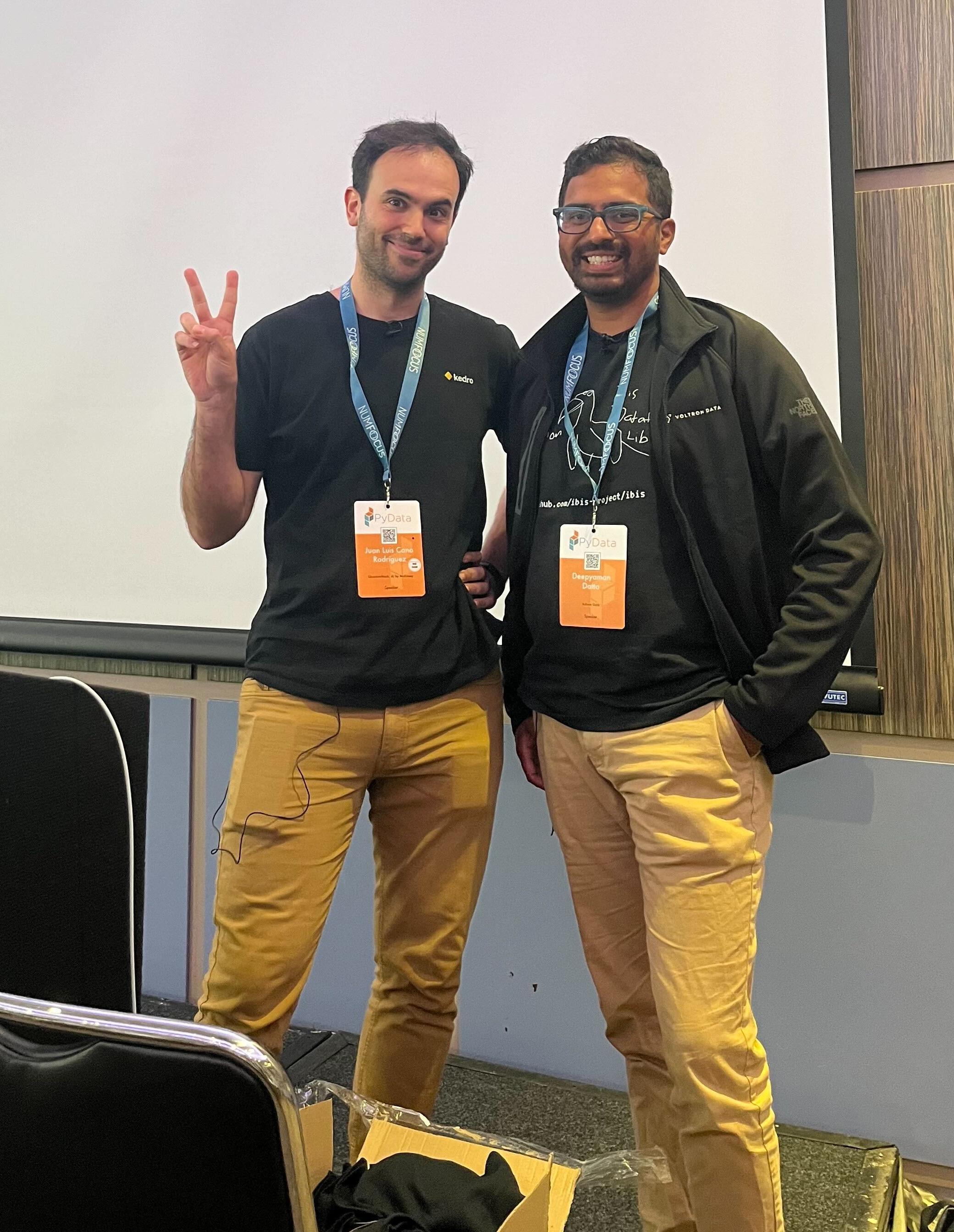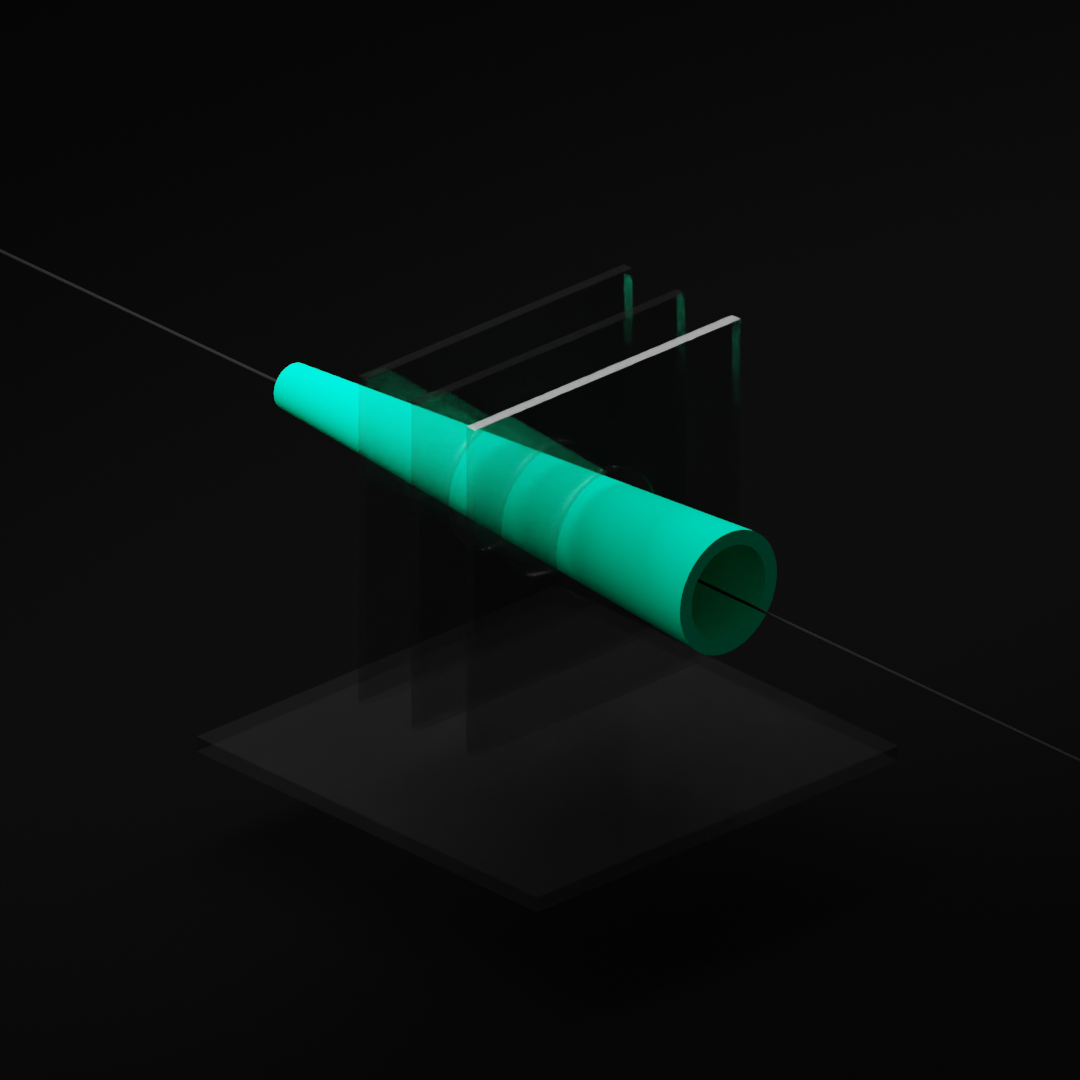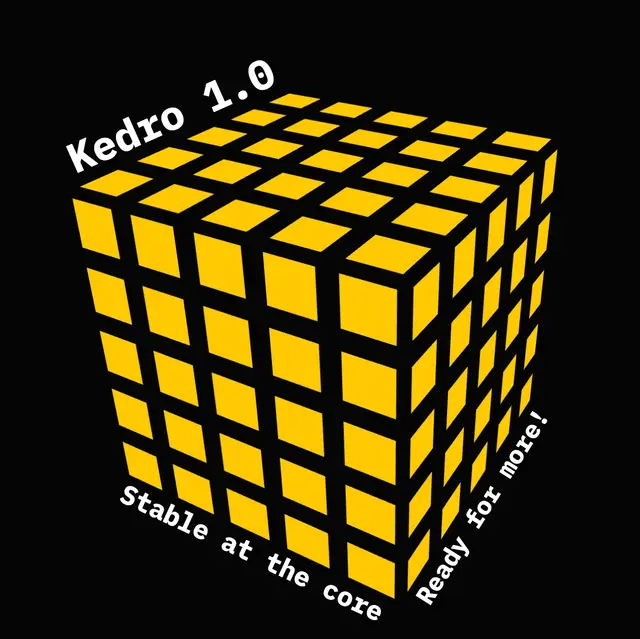Release news
Since our last newsletter post, we have released Kedro 0.19.6. In the list of major features and improvements are the following: We added an extra way to detect failing pipelines; we changed Kedro so you can use it without having installed rich; and we updated custom logging behaviour. There were also a chunk of bug fixes and documentation updates.
We also updated kedro-telemetry to version 0.4.0, which added support for python 3.12, among other features, and made updated kedro-datasets to version 3.0.1.
In the Kedro framework, we have our first early warning for a deprecation, coming in version 0.20.0. All micro-packaging commands (kedro micropkg pull, kedro micropkg package) are deprecated and will be removed when we make that release (date TBD).
We’d also like to highlight the 0.2.0 and 0.2.1 releases of the kedro-partitioned plugin here (a third-party plugin for extending partitioned data support). Find out more about the plugin on GitHub.
Kedro in conference
Coming soon! On July 8th, Juan Luis will be at EuroPython 2024 with a 3-hour workshop “From zero to MLOps: An open source stack to fight spaghetti ML”. Registration is still open for in-person and remote tickets.
Back in May at PyCon US 2024, there was a presentation entitled “Improve Your ML Projects: Embrace Reproducibility and Production Readiness with Kedro” by Juliana Ferreira Alves.

More recently, PyData London featured Deepyaman and Juan Luis “Analytics engineering without dbt? Building the composable Python data stack with Kedro and Ibis”. You can find a video of their presentation on YouTube.
What we’re reading
We loved seeing the post titled Hamilton & Kedro for modular data pipelines: A feature comparison to choose one or both.
Julien Hurault released an excellent piece about maintaining data pipelines.
Christophe Blefari gave a roundup of Databricks and Snowflake summits that summarised some recent major announcements.
Sem Sinchenko wrote a first look post about Databricks Unity catalog.
The QuantumBlack blog released a post about a use case that combines generative AI and Kedro for use with banking data.
Don’t forget the fantastic new book from O’Reilly: Software Engineering for Data Scientists. The book explains the best practices needed to write reproducible, robust, scalable code, which is, of course, a guiding philosophy for Kedro projects. If you don't have access to Safari Online, you can get 30 days free access to the book, and other O’Reilly content, with this code.
If you spot Kedro in an article or video, don’t forget to share it on the #resources channel on Slack. And if you make a video about Kedro, or write an article, don’t be shy! Add it to the channel and to the “Awesome Kedro” repository so others can find it!
Recently on the Kedro blog
Recently published on the Kedro blog:
We’re always looking for collaborators to write about their experiences using Kedro. Get in touch with us on our Slack workspace to tell us your story!
That’s it for this edition!
Don’t forget that we also make regular Kedro updates on LinkedIn, on our Mastodon, and on our increasingly popular Slack community. Keep an eye on the QuantumBlack LinkedIn feed too!
Bookmark this blog or add our RSS feed to your favorite reader to stay in the loop and join us next month for an August update all about Kedro.






